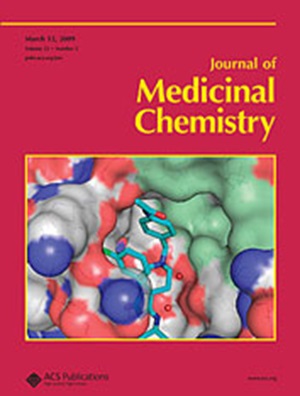Application of Machine Learning and Mechanistic Modeling to Predict Intravenous Pharmacokinetic Profiles in Humans
IF 6.8
1区 医学
Q1 CHEMISTRY, MEDICINAL
引用次数: 0
Abstract
Accurate prediction of new compounds’ pharmacokinetic (PK) profile in humans is crucial for drug discovery. Traditional methods, including allometric scaling and mechanistic modeling, rely on parameters from in vitro or in vivo testing, which are labor-intensive and involve ethical concerns. This study leverages machine learning (ML) to overcome these limitations by developing data-driven models. We compiled a large data set of small molecules’ physicochemical and PK properties from public sources and digitized human plasma concentration–time profiles for approximately 800 compounds from the literature. We introduced a hybrid modeling framework that combines ML with physiologically based pharmacokinetic modeling and a hierarchical ML framework that employs two steps of learning to directly estimate PK profiles. Tested on 106 drugs, these frameworks demonstrated prediction accuracies within a 2-fold and 5-fold error for 40–60% and 80%–90% of compounds, respectively, in both AUC and Cmax. Proposed approaches could enhance early molecular screening and design, advancing drug discovery capabilities.

求助全文
约1分钟内获得全文
求助全文
来源期刊

Journal of Medicinal Chemistry
医学-医药化学
CiteScore
4.00
自引率
11.00%
发文量
804
审稿时长
1.9 months
期刊介绍:
The Journal of Medicinal Chemistry is a prestigious biweekly peer-reviewed publication that focuses on the multifaceted field of medicinal chemistry. Since its inception in 1959 as the Journal of Medicinal and Pharmaceutical Chemistry, it has evolved to become a cornerstone in the dissemination of research findings related to the design, synthesis, and development of therapeutic agents.
The Journal of Medicinal Chemistry is recognized for its significant impact in the scientific community, as evidenced by its 2022 impact factor of 7.3. This metric reflects the journal's influence and the importance of its content in shaping the future of drug discovery and development. The journal serves as a vital resource for chemists, pharmacologists, and other researchers interested in the molecular mechanisms of drug action and the optimization of therapeutic compounds.
 求助内容:
求助内容: 应助结果提醒方式:
应助结果提醒方式:


